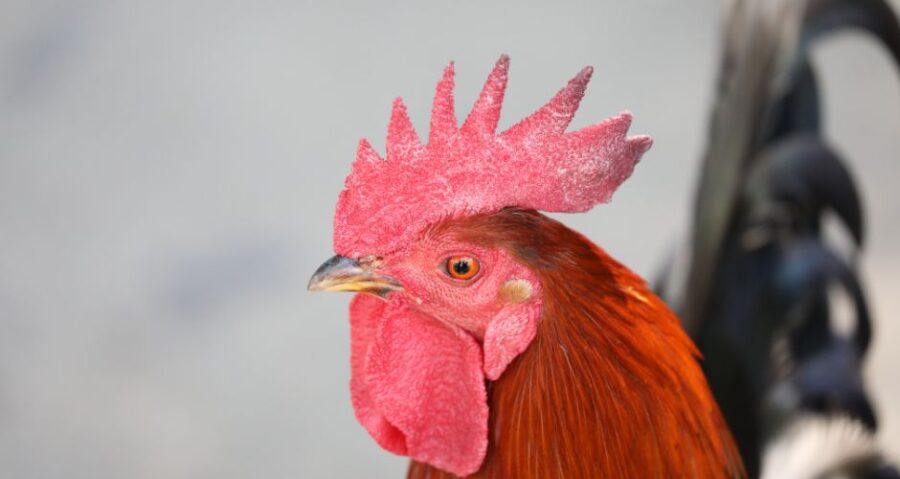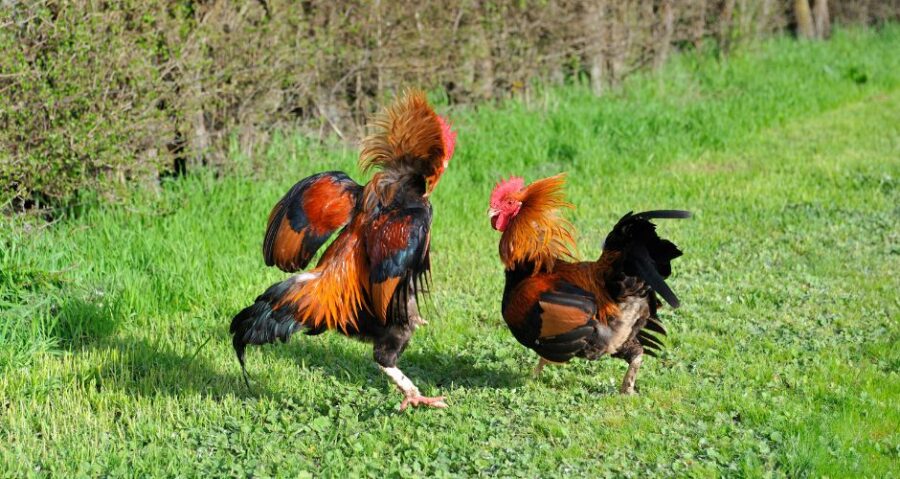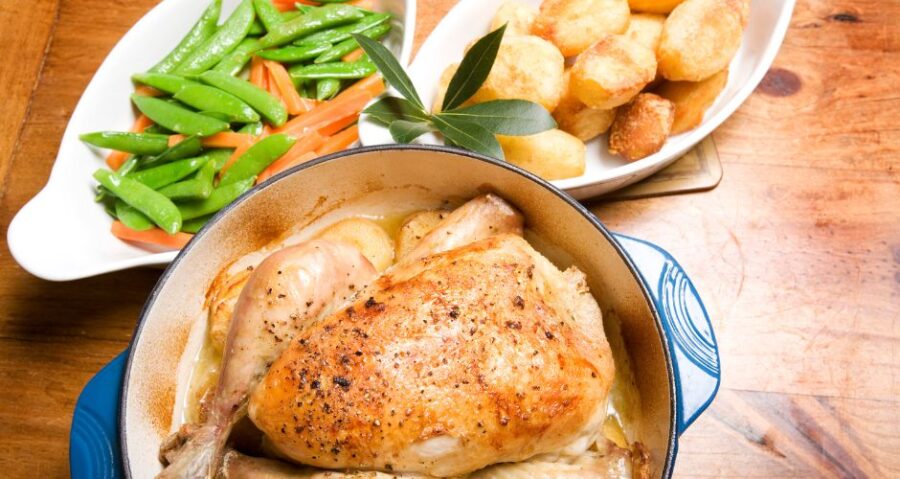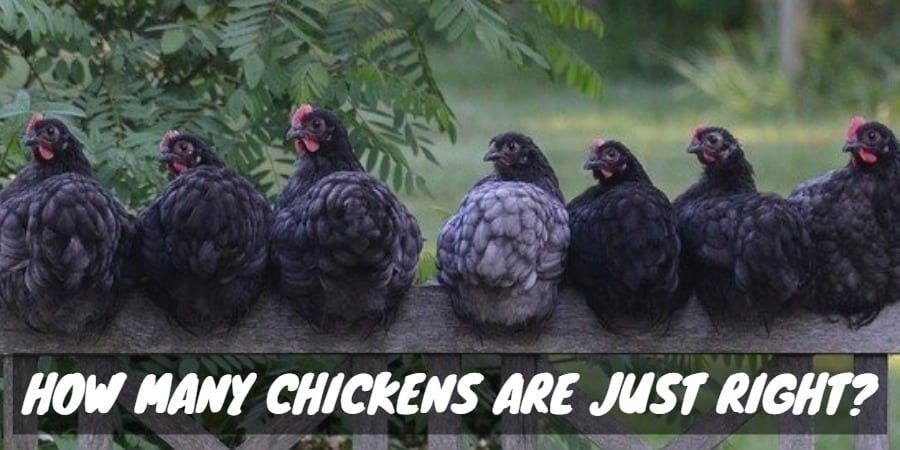A domestic rooster will live, on average, 5-8 years.
With preferential treatment, and under the right conditions, a backyard rooster that is well cared for can live upwards of 12 years.
If you’ve ever been chicken chased by your rooster you know, roosters serve an important part in the health and well being of the backyard flock. They are devout defenders, exceptional providers, and a wonderful showpiece when you get the right one.
Despite most accounts, roosters can also be wonderful pets when treated with care and blessed with gentle genetics.
So, how does one prolong the life of a rooster?

3 Factors that Affect A Roosters Lifespan.
There are some serious discrepancies that affect how long a rooster will live.
While the average lifespan in captivity is 5-8 years, many roosters will see an untimely death long before the 5 year mark.
Before we dive into the factors that determine the average lifespan of a rooster, it’s important to understand the primary function of these beautiful, yet mildly … or wildly … aggressive barnyard friends.
Side note : Did you know, the oldest recorded hen was 16 years old? What a fascinating chicken: Matilda.
What is the Purpose of a Rooster?
I just know that there is a man out there about to read this section who has the excitable and obvious answer to this.
Breeding!
Yee-haw!
Did you know, roosters don’t have a penis! Yup, as fun as it is to think that they are needed for breeding, they do it sans pecker. Neat fact.
Yes, while a rooster is needed to keep the species alive, that is only a small part of the primary purpose of their existence.
Roosters serve a variety of important functions and, while many municipalities may prohibit roosters because they are “loud”, they are extremely helpful when raising a flock of hens.
Roosters Know Where to Find the Food
Roosters are excellent food critiques and will gladly lead the flock to prime feeding grounds.
When a rooster identifies a will stocked food source they will call the hens over and show them the sweet spot. (Even if it’s just to the bowl you filled moments before, they will proudly announce that they found food.)
Roosters Alert for Predators
Roosters are constantly on guard for predators and will sound the alarm should the flock be in danger.
Roosters Defend the Flock
I mentioned earlier the core memory every backyard chicken tender has of being chased, wildly, by a rooster.
It doesn’t seem to matter if you’re 180 pounds heavier than them and armed with a walking stick, roosters are fearless and will defend the flock with their lives.
They are talented and skilled fighters, equipped with a sharp beak and razor talons, spurs, and can bravely defend the flock against predators in the air and on the land.
Our Easter Egger rooster once chased down and successfully deterred a hawk who had grabbed our lavender orpington, saving her life. It was chaotic and amazing to behold.
So, now that we know some of the main reasons every backyard chicken tender should have a rooster, let’s discuss why some roosters live longer than others.
Roosters Raised in Captivity vs. “Wild” Roosters
There is a significant range of expected lifespan for the average rooster and a number of contributing factors but none more pressing than whether the rooster is feral.
While the average age of a wild rooster is 2-5 years, it is rare that a rooster would survive that long in the natural environment.
The primary reason being, there are a myriad of challenges to surviving in the wild as the literal protector of the flock. Risks include:
- Predators.
- Disease.
- Weather.
- Competition.
- Poor Diet.
To name a few.
Wild roosters, while “supposedly” live an average of 2-5 years, arguably live on the shorter end of that average simply because the odds are not in their favour.

Roosters Owned by Backyard Farmers: The Unwanted Chicks
While roosters raised in captivity generally fare better than their wild counterparts, the odds are probably less favourable for a rooster raised by a backyard chicken keeper.
Why?
Roosters don’t lay eggs.
It’s that simple.
Most chicken tenders keep chickens so that they can enjoy the benefits of farm fresh eggs.
While it may seem inhumane, and possibly it is, it is the reality of small scale chicken keeping, and – frankly – the nature of the “system”.
Roosters generally require a ratio of hen to rooster of about 10-1 to maintain a balance in the flock (to prevent fighting and aggression in your roosters).
Because the odds of hatching a male or a female, biologically speaking, is 50/50, the balance required for harmony in the flock and the actuality of biology don’t line up.
Presumably that is because, in the wild, most roosters will die as cockerels while they are proving themselves or defending the flock.
In a backyard breeder, the odds mean that roosters will, most likely, end up in freezer camp.
That is, grown until they are a reasonable weight and then dispatched to feed the family.

Ways To Increase Your Roosters Life Expectancy
- Don’t eat it.
I kid, kind of.
Yes, while the balance of hens to roosters being hatched for domestic, backyard, purposes is nowhere near what is needed to maintain a peaceful and healthy flock.
And, yes, because of the above mentioned “dilemma” many roosters, even in (and especially so) hatcheries, will see untimely deaths because their primary purpose is meat … there are other ways to increase the lifespan of your rooster.
Because chances are, if you are a backyard chicken tender, you probably have a rooster you’ve handled from hatchling and you want to keep this stud around as long as possible.
- Keep the chickens secure.
- Provide quality nutrition and clean water.
- Maintain a clean coop and chicken run.
Conclusion
While the average lifespan of a rooster – in captivity – can be as much as 15 years, it is far more likely that they will be raised to feed the family and ultimately meet their fate around 6-8 months.
It may not be a rosy outcome, but it’s practical.
We’ve raised and loved our straight run chicks, we’ve played the odds hoping for more pullets than cockerels, but – at the end of the day – we do our best to ensure that our flock lives a happy and healthy life until it’s their time for the soup pot.
**I am so sorry if I’ve upset people because I’m real, we can’t keep dozens of roosters on our homestead for practical and economic purposes. Our goal is to raise them humanely and to appreciate them in how they feed our family. If you have a bachelor farm of roosters you absolutely adore – all the power to you!**




